Review of Making Literature Now by Amy Hungerford
R. M. Berry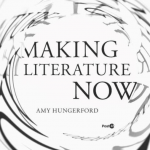
Berry, who with ebr editor Joseph Tabbi initiated the Fictions Present thread (circa 2006), finds few intersections of that project with Hungerford’s celebrated Making Literature Now, not least because Hungerford shows little interest in the question of how her titular concept, when applied to commercial and cultural productions, indie and alt endeavors, “manages to mean what those trying to make literature are trying to make.”
Forms of Censorship; Censorship As Form
Joseph McElroy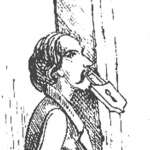
Beginning as a talk delivered at the National University of Kyiv-Mohyla Academy, Ukraine May 17, 2017, now edited and amplified for publication in the electronic book review and the 2018 collection of ebr essays forthcoming from Bloomsbury Press.
Getting Lost in Narrative Virtuality
Will Luers
Repetition, gestural abstraction and depictions of noise; an absence of narrative causation, a multiplicity of micro-narratives and opacity of material communications: The digital narrativity observed and created by Will Luers is equally applicable to the films of Stanley Kubrick or the paintings of Hieronymous Bosch - which implies a longer continuity (and less radical transformation?) than we might have expected. Indeed, Luers argues that "networks and nonlinear systems" might better be understood as "something deep in our brains," even as narrative may be regarded "as a necessary construct, but not the complete picture of reality."
Review of Angela Nagle’s Kill All Normies: Online Culture Wars From 4chan and Tumblr to Trump and the Alt-Right
Gregor Baszak
Gregor Baszak parses Nagle's celebrated, and "overdue" reconsideration of the internet, and social media in particular as a battlefield for politics.
Cinema without Reflection by Akira Mizuta Lippit
Leiya Lee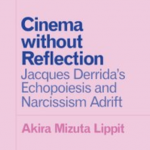
If it's true, as Leiya Lee argues, that Akira Mizuta Lippit turns Derridean theory into a system, then it's a system grounded in ghostly presences (not least Derrida's own presence in film).
“Bad Disruption”
Lai-Tze Fan
ebr Associate Editor Lai-Tze FAN responds to Dani Spinosa's review of llegal Literature: Toward a Disruptive Creativity, by David S. Roh.
“We Write to Each Other”
David (Jhave) Johnston
David Jhave Johnston responds to Theadora Walsh's review of his book Aesthetic Animism: Digital Poetry's Ontological Implications.
Information Wants to Be Free, Or Does It?: The Ethics of Datafication
Bettina Berendt, Geoffrey Rockwell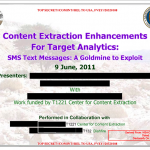
"More is not necessarily more. Faster is not necessarily better. Big data is not necessarily better." In the effort to capture and make available data about people, digital humanities scholars must now weigh the decisions of what and what not to share. Geoffrey Rockwell and Bettina Berendt address the new ethical issues around “datafication” in an age of surveillance.
Illegal Literature: Toward a Disruptive Creativity
Dani Spinosa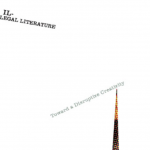
Dani Spinosa reviews David S. Roh's Illegal Literature a book about authorship, copyright, fair use and literary disruptions.
Aesthetic Animism: Digital Poetry’s Ontological Implications
Theadora Walsh
A review of Aesthetic Animism, so vulnerably personal, and at the same time so pragmatically organized, that it might just suggest a possible future for scholarly and creative scholarship: a digital practice that (in Jhave's words) "distends selves towards collectivities that remind it of oblivion." For the moment, that inevitability is avoided by the book's receipt of the 2017 N. Katherine Hayles Award for Criticism of Electronic Literature.
The Mourning of Work in For a New Critique of Political Economy: Bernard Stiegler, a Hacker Ethic, and Greece’s Debt Crisis
Harun Karim Thomas"Even among the Greeks and Romans, the most advanced nations of antiquity, money reaches its full development, which is presupposed in modern bourgeois society, only in the period of disintegration."- Karl Marx, Introduction to A Contribution to the Critique of Political Economy
Text Generation, or Calling Literature into Question
Mario Aquilina
Reflecting on the genealogy and histories of "transgressive textualities" and text generators, Aquilina offers readings of texts by Swift, Dahl, Orwell, and Borges to consider the terms and issues involved in situating text generators as transgressive.
Infiltrating Aesthetics: Videogames, Art, and Distinction
Trevor Strunk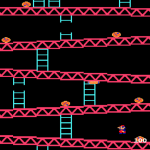
Though scholars of literature and the arts remain skeptical, Strunk explores some of the ways "videogames are making the transition into being objects worthy of artistic attention."
Review of Stewart O’Nan’s West of Sunset
Christian Messenger
In this review of O'Nan's West of Sunset, Messenger explores 20th Century American literary history as a kind of contemporary metafictional myth. Using Scott and Zelda Fitzgerald as characters composing the life of a literary icon against the emergence of "Hollywood," O'Nan's work is considered a bittersweet meditation on the death of an author and the hope that his work lives on.
The End of Landscape: Holes by Graham Allen
Anne Karhio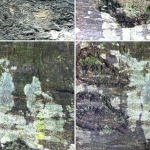
In her discussion of the textual, technical, and figurative characteristics of Graham Allen’s Holes (2017), Karhio “argues that [Allen's text] is not a landscape poem in the customary sense” and explores the ways in which the digital platforms deployed in the project’s creation and publication contribute to the signifying structures that “challenge the idea of landscape as symbolic representation of the inner world of the speaking subject.”